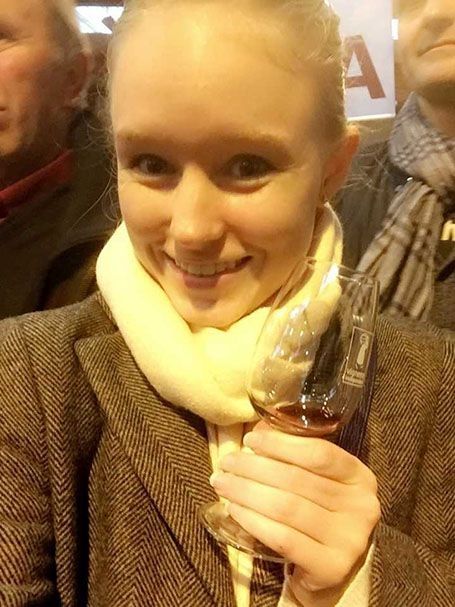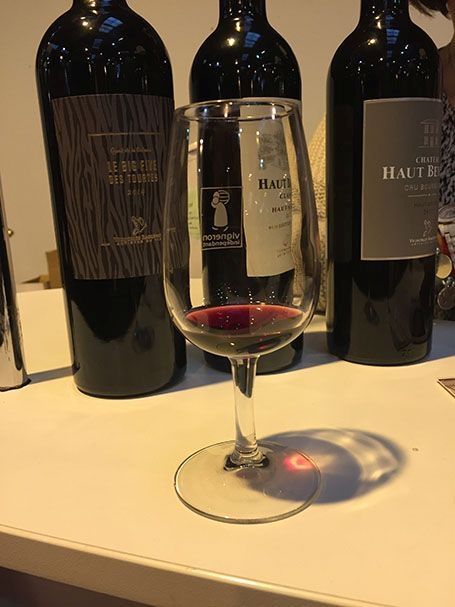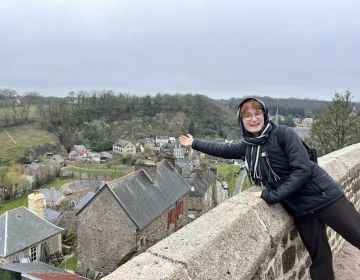La Vie En Rosé
Americans are loud. Canadians love hockey. The French know their wine. Sometimes, stereotypes exist for a reason; even the most outlandish caricatures are centered on a grain of truth. In this case, I should say a grape of truth, and there are veritable vines of evidence. Don’t believe me? Read on.
My experience with wine began long ago, in a mystical land called Napa Valley. Thanks to my convenient home base of San Francisco, I could accompany my parents on their wine-tasting excursions. As a result, I arrived in France already equipped with a knowledge of crisp versus dry versus buttery whites, and the difference between fruity and earthy reds. I’d been known to turn my nose up at my college peers’ taste for boxed wine, and more than once I’d been quoted saying that the wine “needs to open up a bit first.” Aside from treating wines like they were shy adolescents, I had a couple of other tricks for convincing my peers that I had a more refined palate than they, and that was enough. I’m glad I possessed even this meager advantage, because I made use of it on my very first full day in Paris.
My pals and I found ourselves with an hour of free time, so we naturally meandered into the nearest café. My first instinct was to taste a reasonably priced French wine. For 3 euros I received a modest glass of some of the most delicious Bordeaux I’d tasted in years. France had already impressed me.
Fast-forward two weeks, when I had settled into my life in Rennes. With not only some field experience but also a veritable crash course in wines under my belt (courtesy of CIEE, cheers), I considered myself fairly satisfied with my life as an amateur sommelier thus far. But everything changed one Sunday, when my host mom picked up her canvas bag and her car keys and told me we were going to a wine convention that evening. After a thirty minute drive which I spent drenched in red wine reveries, we pulled into a packed parking lot and squeezed into the most Lilliputian parking spot in existence, which we managed only because of my host mom’s equally Lilliputian European car. But we’d made it. Upon entering a massive warehouse, we each received an empty glass and a brochure. Then we were set loose: before us beckoned stall after stall of wineries from each and every winemaking region in France. Everywhere I looked I saw “Provence” and “Bourgogne” and “Champagne”, and in my peripheral vision I spotted stalls selling chocolates, pâtés, and cheeses: all classic wine accompaniments.
To save time, my host mom and I mutually decided to largely limit our tasting experience to reds, but I made a special exception for the particularly popular stalls offering champagne. The fizzy beverage of choice for all swanky celebrations surprised me with its variety: I sampled a glass that tasted almost like alcoholic soda pop, a glass that tasted like crisp fruit, and one that I can only describe as tasting like liquid sunshine. And that’s just one region.
I discovered that Provencal reds tend to be bold and fruit-forward, whereas Bourgogne wines tended to be earthier. Bordeaux, always my favorite, produced earthy and well-balanced wines that sang with flavors of autumn leaves and spices and campfire smoke. Because a supervisor stood ready and waiting at each station both to serve wine and answer questions, I indulged in every caprice of my curiosity: what was the ratio of cabernet versus merlot in this blend? Was this year a good year for wine in this region? How long could this bottle be kept in a cellar, and would it age well? More than once I discovered that some of my wine opinions were misplaced, and throughout the entire experience I became brutally and wonderfully aware of how little I knew about wine, particularly compared to every chic-styled woman, red nosed gent, and proud smiling couples, all of whom had grape juice in their very veins. My host mom, who confided in me that she didn’t drink very often, could easily maintain conversations about the quality of the grapes, and knew what she did and didn’t like in a given glass, displaying a proficiency that would make many American restaurateurs jealous. And it makes sense: in the United States we theoretically don’t begin our alcoholic education until 21 years of age, (even if it began at 18 the French would still have a head start), and then it normally consists of whatever spirits are cheaply and readily available. Svedka upstages Sauvignon Blanc. However, in France where a glass of red wine can be cheaper than a beer or vodka and with an exponentially higher quality, it’s easier to cultivate a more refined palate. In this amateur sommelier’s opinion, this is one aspect of extracurricular education that is absolutely vital in order to claim one has truly experienced France.
Julie Winspear
Texas Christian University
Related Posts
The Ultimate Guide to Studying Abroad in France
Beauty. Glamour. Taste. France has it all, making it a timeless destination for the millions of visitors who travel from all around the world to explore this incredible country each... keep reading
Day in a life: Excursion to Roche Aux Fées and Fougères
As part of the CIEE Rennes program, we go on cultural excursions together. These are awesome chances to learn about and experience the local culture firsthand! And, they allow us... keep reading
“Petits” Discoveries Every Day
Language is a tool that opens a door for you to explore a new culture, people, tradition, and more. Its acquisition can take any method: studying grammar and vocabulary by... keep reading




